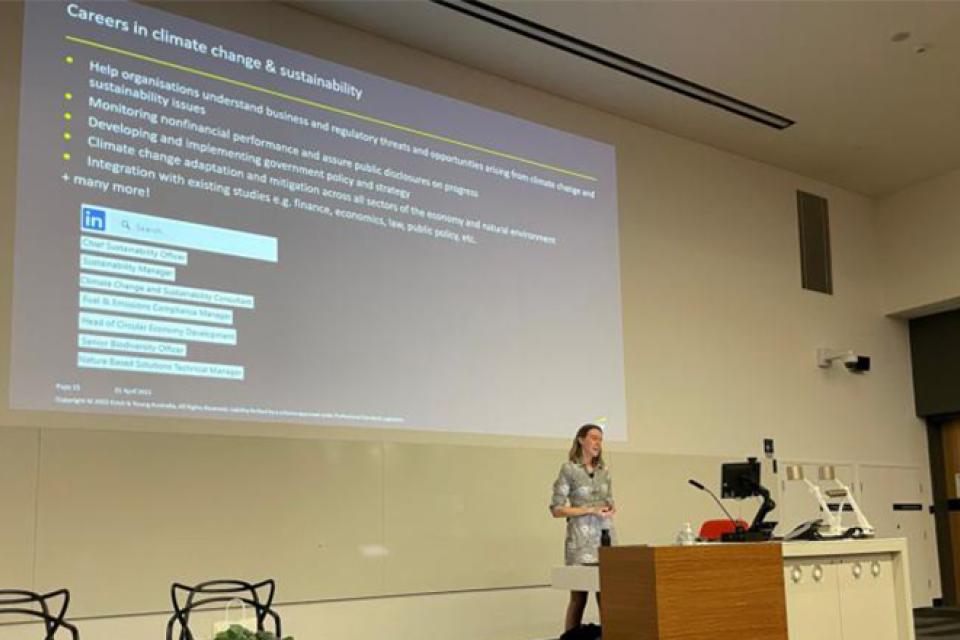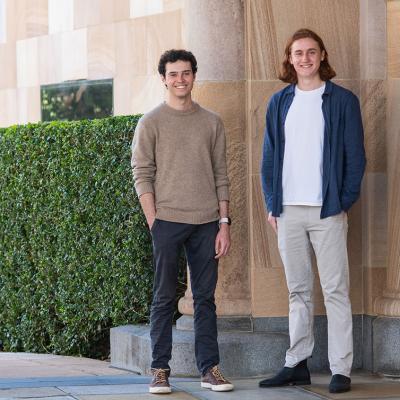When global crises occur, they can affect the economy like a wave, creating a disturbance that travels quickly, fluctuating in size and transferring energy at an unpredictable speed. This domino effect impacts businesses, the market and everyday life.
In the last decade, Australia has endured significant disruptions in the form of bushfires, a global health pandemic and flooding, straining a variety of businesses and industries. These disruptions are examples of megatrends, the transformative collection of social, environmental and technological forces that impact and reshape global society and economies at an accelerated pace.
Dominating the World Economic Forum’s Global Risks Report 2022, environmental risks are no longer seen as purely ‘environmental issues’. Climate action failure, extreme weather events and loss of biodiversity are predicted to have a severe impact on ecosystems, access to natural capital and economic activity, with substantial financial losses.
Megatrends help inform our understanding of what the future economy and working world will look like. Climate change can shape careers by shaping the global economy. New industries and jobs emerge as businesses increasingly change the way they run and influence the way we work.
We spoke with UQ Bachelor of Business Management / Bachelor of Science alum and Ernst & Young (EY) manager, Christine de Waard, to get her insights on this fascinating topic.
Why businesses need to adapt to megatrends
There can be critical long-term disadvantages for businesses that underestimate the risks associated with megatrend disruptions and don't adapt. This oversight can be a result of current incentive structures that reward short-term performance and diminish the value of long-term resourcing or goals.
However, organisations that are quick to adapt to climate change and implement sustainable practices have potential for business growth.
"There are huge opportunities to be more efficient with resources, reduce waste, use different energy sources, come up with new innovative products and services, access new markets and growth in existing markets, and increase resilience,” she says.
Christine has found that organisations and businesses are no longer only expected to create profit for shareholders. Consumers and stakeholders now have expectations about the way organisations engage with society, impact the environment and prepare for the associated risks of climate change. Failing to address these expectations can lead to a business’s downfall.
Equally important is how companies communicate to build transparency over environmental, social and governance (ESG) performance, in addition to financial performance. New reporting standards for companies that integrate performance across climate change and environment into financial statements are emerging. These standards connect sustainability reporting and performance to the value of a company.
New opportunities in the public and private sector: business sustainability careers
Christine works with government clients, private companies and not-for-profit organisations to realise the value in sustainability. She helps stakeholders:
- understand climate risks and opportunities for communities and industries across Australia
- develop decarbonisation pathways for businesses and industries to reach net zero emissions
- communicate these through strategy and policy.
“Some of my most interesting projects to date have shown that there are significant upsides, and much lower risk, to embracing a transition to net zero emissions compared to continuing business as usual. We have seen this make a real difference in how organisations go about decision-making, planning and policy development.”
The upside to disruption for businesses and industries who respond to opportunities can include:
- access to emerging markets and consumer demand for low carbon products and services
- an improved reputation from adapting early to a future low carbon economy
- increasing resilience of businesses and economies (e.g., resilience to changing policies and physical resilience to changing climate patterns)
- social benefits including access to more affordable energy over time and green jobs
- environmental benefits including reduced reliance on raw materials (e.g., from increased efficiency and recycling) and protection of the natural environment.

Influence on future business careers and careers in sustainability
New careers and industries have appeared in response to global megatrends and growing demand for sustainable business practices. More and more jobs that involve sustainability, circular economy development, green finance, clean energy, biodiversity, fuel and emissions compliance and climate change are becoming available.
“When thinking about tertiary studies, think about jobs of the future. If you’re interested in something and want to learn more about it, that’s a great place to start.”
Careers combining business and sustainability can:
- help organisations understand regulatory threats and new opportunities
- monitor nonfinancial performance and assure public disclosures on progress
- develop and implement government policy and strategy
- adapt and mitigate climate change issues across all sectors of the economy and natural environment.
As the impact of climate change becomes increasingly difficult to predict and plan for, roles that support organisations in developing and managing their response will become integral. More and more, stakeholders and customers are demanding greater transparency about the sustainability of a business’s practices. Businesses will need to strengthen their operating systems to survive.
Future-proof your career against uncertainty
Are you ready to lead business strategy development and transform complex subject matter into practical and meaningful action?
Double your skills and opportunities by pairing a UQ Bachelor of Business Management with another area of interest. From science and engineering to journalism and laws, there are 14 dual programs you can choose from.
Christine de Waard, Ernst & Young (EY) manager and UQ Bachelor of Business Management / Bachelor of Science alum, is a specialist in helping government and industry prepare for climate change and operate more sustainably long term. Christine’s position allows her to analyse megatrends to identify risks and the opportunities for businesses to develop their resilience and face future disruptions.
The views expressed in this article represent Christine de Waard’s personal opinions and do not necessarily represent the position of EY.






